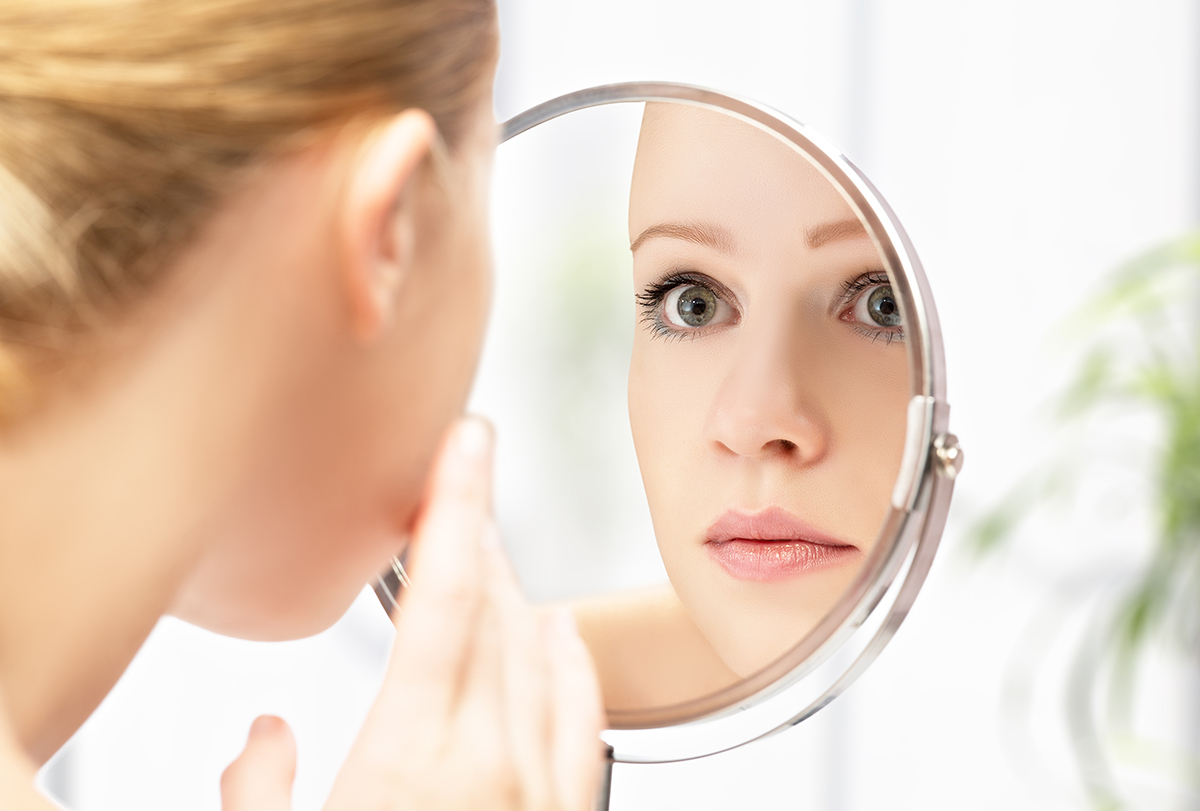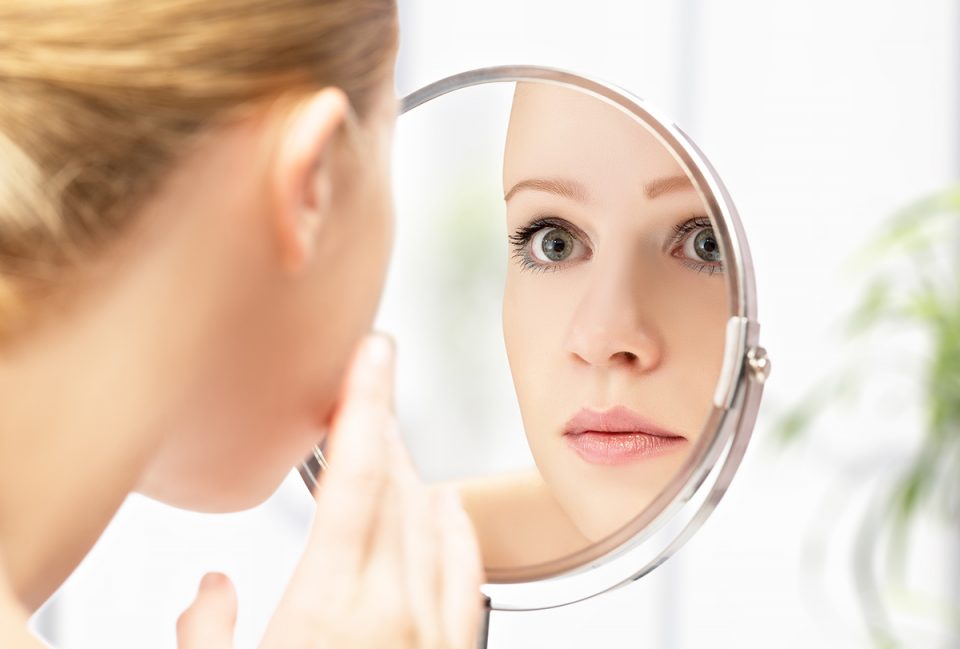Acne is a common skin problem faced by millions of people. Most teenagers and young adults go through acne due to their changing hormone levels.

Acne can range from mild to severe, and chronic cases may require medical treatment. (1)(2) This article will present some common remedies you can try at home to help clear your skin. (3)
Home Remedies to Treat Acne
Here are a few useful home remedies you can try to get rid of acne:
1. Drink turmeric milk

Turmeric is filled with antioxidant, anti-inflammatory, and antimicrobial properties. It contains the active compound curcumin, which is known for reducing inflammation and fighting infections. (4)
How to use:
Add 1 or ½ teaspoon of turmeric powder to a glass of milk and drink it every day.
2. Use honey topically
Antimicrobial properties are pivotal in dermatological applications.
Honey is a natural antibiotic and anti-inflammatory agent that can help provide quick relief from acne. It kills bacteria and is densely packed with nutrients that nourish the skin. (5)(6)
How to use:
- Dip a cotton ball in some honey and apply it to the acne-prone area. You can also use your fingers for application.
- Let it sit for 10–15 minutes before washing it off.
3. Apply an oatmeal face mask
Oatmeal helps lock in moisture into the skin and keeps it hydrated. It also possesses antimicrobial and anti-inflammatory qualities that make it a useful skin care ingredient.
Oatmeal masks may help you get rid of pimples and blackheads. (7)(8)
How to use:
- Grind 3 tablespoons of oatmeal in a blender.
- Add 2 tablespoons of yogurt to this powder and mix them well.
- Apply this face mask to your face.
- Let it rest for 10–15 minutes before washing it off.
4. Try green tea
Green tea contains compounds called “tannins” and “flavonoids” that are known for their antimicrobial and anti-inflammatory effects. They can help heal acne and soothe the skin. (9)
How to use:
5. Apply tea tree oil
Tea tree oil is also rich in anti-inflammatory compounds and is an effective treatment for acne. It helps fight bacterial skin infections too. (9)
How to use:
- Add a few drops of tea tree oil to 1 teaspoon of coconut oil.
- Apply this mixture to the affected area using a Q-tip.
6. Apply virgin coconut oil to the affected area
Coconut oil is an ancient Ayurvedic remedy for many skin issues. It can help clear acne, moisturize the skin, remove tan, and soften the skin. (10)
Coconut oil contains a compound called lauric acid, which is a strong antimicrobial and anti-inflammatory agent. (11)
How to use:
Apply coconut oil to the affected area once or twice a day.
7. Use aloe vera gel
Aloe vera gel is another age-old remedy for acne. It helps in reducing inflammation and soothes the skin. Aloe vera gel helps stop the growth of bacteria and reduces bacterial acne as well. (12)
How to use:
- Apply fresh aloe vera gel directly to the area.
- Let it sit for 20 minutes before rinsing it off.
Dietary Changes to Control Acne
In addition to the home remedies mentioned above, dietary changes can also help manage acne.
Your diet plays a major role in acne. Avoid fatty or oily foods. Try to incorporate foods rich in vitamins E, D, and C into your daily diet.
Moreover, consume antioxidant-rich foods and green leafy vegetables. (13)
Types of Acne
Acne is a broad term used to refer to different types of pimples and spots on the skin. The most common forms of acne are:
- Inflammatory acne: Inflammatory acne can appear as pimples, nodules, and cysts on the skin. They may be pink or reddish. In severe cases, swelling and pus discharge from the pimples can occur.
- Non-inflammatory acne: Non-inflammatory acne includes blackheads and whiteheads. (14)
Causes and Risk Factors of Acne
Acne occurs when the pores of your skin become clogged due to the accumulation of excess oil, dead cells and debris, and bacteria.
A few factors can increase oil production in the body and indirectly cause acne. These include:
- Hormonal changes: Any hormonal changes that occur during puberty, pregnancy, or hormonal disorders can cause acne. (15)
- Age: Teenagers and young adults are more likely to get acne due to changing their hormone levels.
- Medications: Certain medicines can lead to acne, including hormone pills, birth control, and corticosteroids.
- Diet: Consuming a diet of fatty and oily foods can cause acne.
- Stress: Emotional stress is known to worsen acne significantly. Increased stress hormones can be a factor in this.
- Pollution: Exposure to environmental pollutants can cause a buildup of debris on the skin, leading to acne. (14)
Symptoms of Acne
Some common symptoms of acne are:
- Comedones, papules, pustules
- Acne scars
- Irritation and itching
- Pus discharge from the acne cyst in the case of a secondary bacterial infection (16)
Treatment for Acne
You can consult a dermatologist to identify the type of acne you have and get the right treatment for it.
The most commonly prescribed medications are:
- Antibacterial creams
- Topical or oral retinoids
- Topical benzoyl peroxide
- Oral contraceptives
Each case is unique and there is no “one-size-fits-all” when it comes to treatment. Your dermatologist will prescribe the appropriate medication and dosage for you. (17)(18)
Measures to Prevent Acne
Most cases of acne can be avoided. Follow these measures to steer clear of the condition:
- Wash twice a day and after sweating. Maintain proper hygiene and wash up twice a day to prevent pore clogging.
- Use your fingertips to apply a gentle, nonabrasive cleanser. Do not use washcloths or bath sponges as they can become breeding grounds for bacteria.
- Be gentle with your skin. Avoid using harsh chemical products on your skin. Use gentle cleansers and moisturizers.
- Avoid scrubbing your skin. Do not scrub your skin or touch your pimples often as this can make your acne worse.
- Rinse with lukewarm water.
- Shampoo regularly. If you have oily or greasy hair, wash your hair with a mild shampoo every day.
- Let your skin heal naturally. Do not pick at your pimples or try to pop them.
- Stay out of the sun and tanning beds. Always wear sunscreen before heading out. (19)
Most-Asked Questions About Acne
How can I get rid of acne as quickly as possible?
Each person’s acne problem may be different. You can try the remedies given above to speed up the healing process and visit a dermatologist for medical treatment.
Can aloe vera worsen acne?
No, aloe vera is an effective treatment for acne.
How does a skin disease affect a person more than their appearance?
Severe or chronic acne can affect a person’s self-esteem and confidence. It can even lead to depression and anxiety issues in some people. (20)
Final Word
Acne is a fairly common problem and nothing to be ashamed of. Yet, many chronic sufferers of acne tend to be self-conscious about it. Remember that you are more than just your appearance and acne is curable most of the time.
You can try the remedies given above to get rid of acne. However, if your acne persists, consult a dermatologist for proper review. (20)

